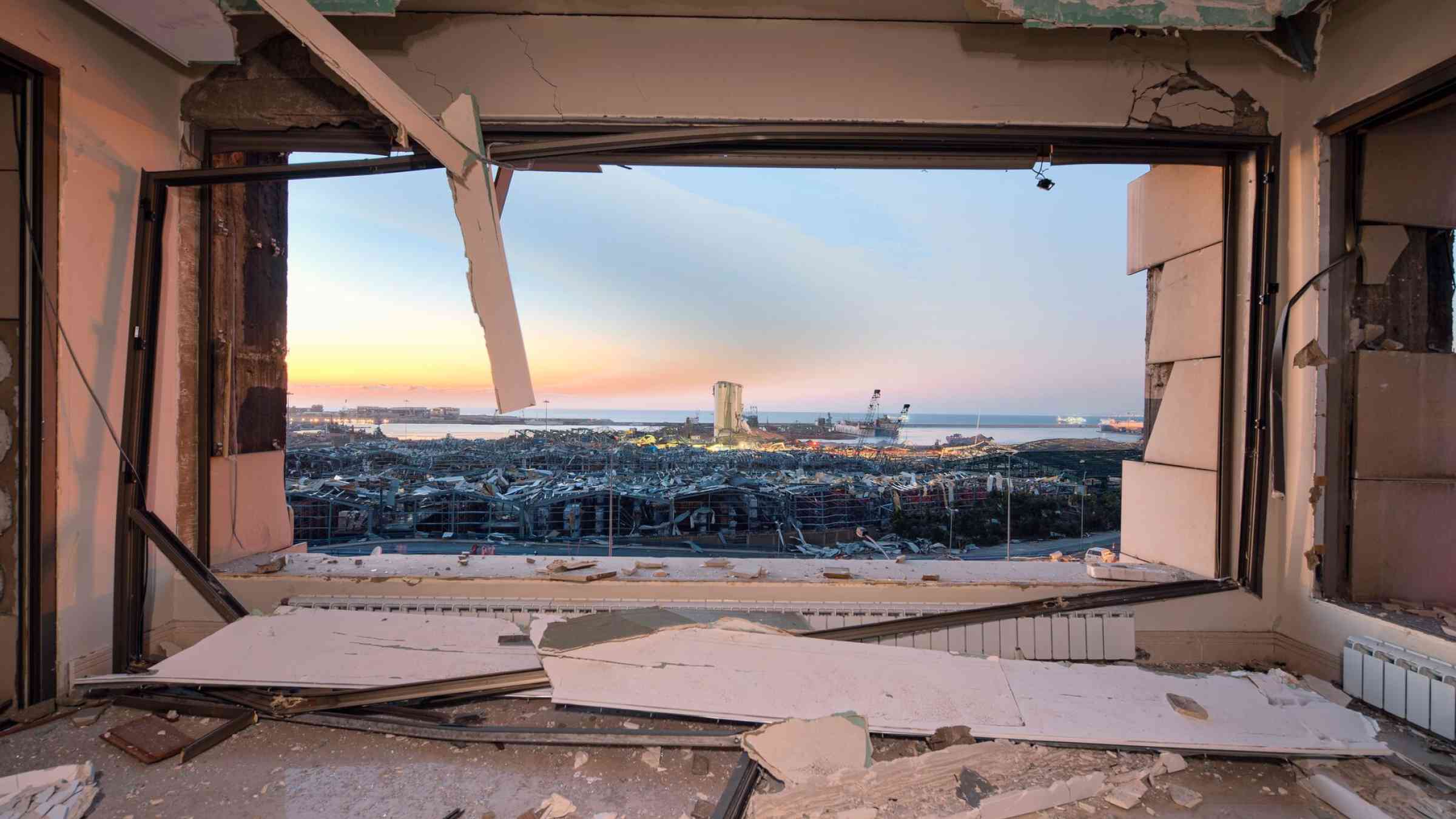Beirut Explosion: It could have been Prevented

At 6:07 p.m. on 4 August 2020, Beirut witnessed one of the largest non-nuclear blasts in history, as 2,750 tonnes of ammonium nitrate that had been stored for six years without safety measures at Beirut's port exploded, sending a devastating blast wave across Beirut.
This could have been prevented, 218 people would not have lost their lives, 6,500 would not have been injured, and USD 15 billion would not have been lost in destruction.
A year since the time stopped in Beirut
Throughout the night of the explosion, patients poured into hospitals. Physical wounds were treated with huge difficulties, as four hospitals close to the port were heavily damaged and put largely out of commission due to the explosion.
But the tragedy had its major psychological consequences, it traumatized an entire population. Children, parents, relatives, friends, colleagues and neighbors lost their lives. Houses, shops, and businesses were damaged. People were traumatized and still to this moment experience post-traumatic stress symptoms including panic attacks, anxiety, and insomnia.
A year had passed, but perhaps it has not sunk in yet… Beirut did not and may not make peace with this tragedy ever.
This all could have been prevented
Had Lebanon’s authorities implemented the provisions of the Sendai Framework for Disaster Risk Reduction 2015-2030 and its predecessors, the 1994 Yokohama Strategy and Plan of Action for a Safer World and the Hyogo Framework for Action 2005-2015, this disaster could have been prevented.
The responsibility of governments around the world to identify risks is included in the Sendai Framework for Disaster Risk Reduction.
Mami Mizutori, the Special Representative of the Secretary-General for Disaster Risk Reduction and Head of UNDRR, told UN News that, whilst the UN response in Beirut was necessarily focusing on the immediate needs of the affected citizens, it is also important to discuss how to reduce the likelihood of a similar incident hitting the city in the future.
“This traumatic event provides a stark reminder that disaster risk is systemic; we cannot see disasters in isolation. Disasters weaken entire systems and cascading impacts are felt across all aspects of life affecting the most vulnerable,” she said in a statement on the explosion.
The core of disaster risk reduction efforts is about shifting attention from responding to disasters to mitigating risks from disasters, thus, reducing deaths and economic loss. In short, it is about prevention and building resilience.
It is all about governance
The catastrophic disaster that hit Beirut underscores the importance of disaster governance, which includes understanding the risk that the city faces and then making and funding plans to tackle it. This did not happen in Beirut.
There are international rules and regulations regarding the operation of ports and the ways that substances are stored, but often regulations are not implemented. Governments need to invest in the right people and the right infrastructure. If this does not happen, we will see more technological hazards turning into disasters.
“When we do not have enough risk governance, the likelihood of a catastrophic event grows,” Mizutori said. “Beirut is a stark reminder that disasters do not wait in turn to strike us.”
UNDRR remains steadfast in its support to the Government of Lebanon in implementing the four priorities for action of the Sendai Framework for Disaster Risk Reduction 2015-2030, which calls for an all-of-society engagement in managing the risks of natural and man-made hazards as well as related environmental, technological and biological hazards and risks.
On 4 August 2020, people in Beirut were grateful that they were still alive, but they should not have been in this situation in the first place. Prevention saves lives.